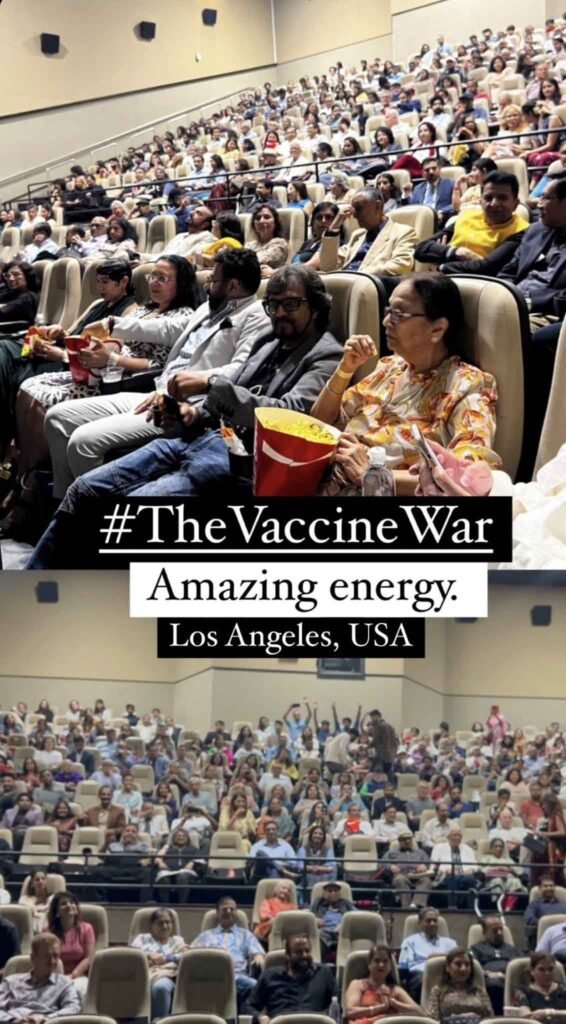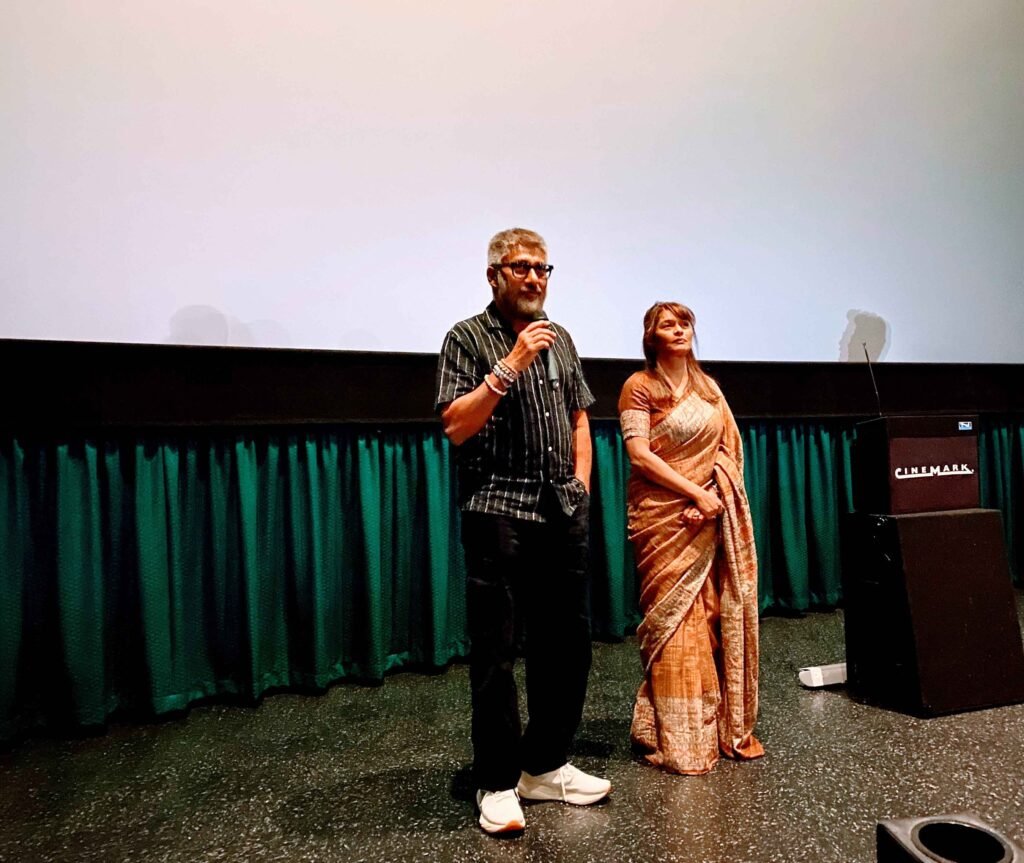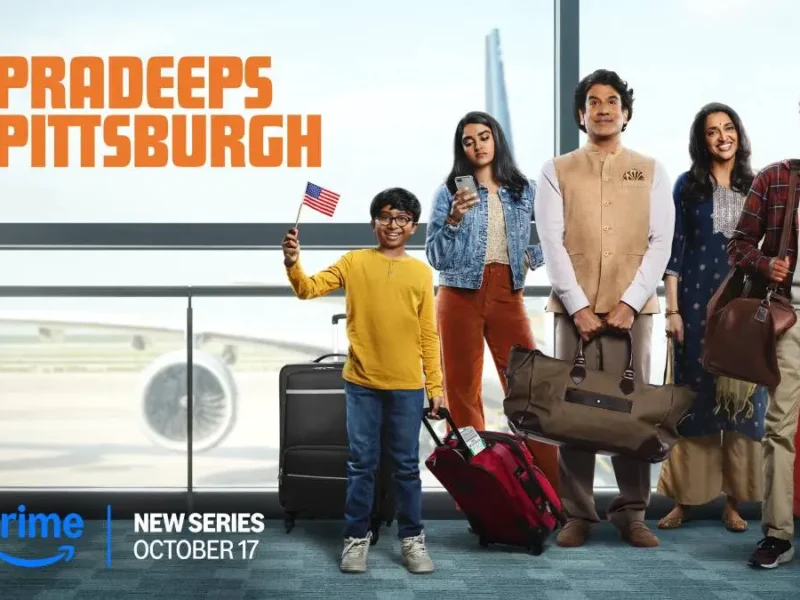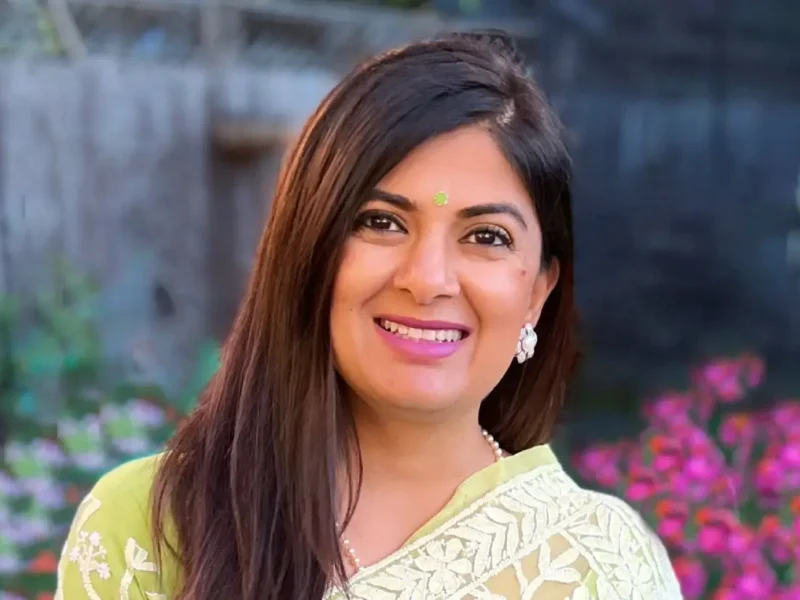I Don’t Have Anything To Do With Politicians: Vivek Agnihotri. Lines Between Faith & Science Are Blurred In India: Pallavi Joshi
Photo: @pallavijoshiofficial
By NIMMI RAGHUNATHAN
Right off the bat, this interview seemed to be set up for slingshots: For the critics, the questions are geared to give him a pass, for the die-hard of the nationalist variety, they are aimed at getting him. Whatever the case, Vivek Agnihotri, 49, cannot be ignored. As if to prove the point, the day after the interview, his feature film, ‘The Kashmir Files,’ figured in the National Awards for Best Feature Film on National Integration.
Pallavi Joshi, 54, his wife and the producer of several of his films, including the new one gearing up for release in September ‘The Vaccine War’ was named the Best Supporting Actress for ‘The Kashmir Files,’ her second National Award.
The duo was in California on a pre-screening tour of the US of their new celluloid feature that focuses on the making of Covaxin, an Indian-made vaccine developed to fight the scourge of Covid.
Agnihotri was born in Gwalior and attended the Indian Institute of Mass Communication, Bhopal School of Social Sciences, and the Jawaharlal Nehru University. Joshi is a Maharashtrian who was a well-known face on TV and Hindi cinema even before they were married in 1997.
The couple spoke to India-West separately and true to their public image, Agnihotri came across as quick talking, almost brash while Joshi’s fire was couched in pleasant, silver tones while not losing any of its conviction.

Excerpts: Vivek Agnihotri
Q: What has changed for you after ‘Kashmir Files’?
A: As a filmmaker and storyteller more people believe in me. I have also found my audience. Another thing is I have security with people carrying guns around me. I live like I am in prison; we can’t go out with our children together for dinner. It’s not necessarily good to be famous, there is a price to pay.
Q: You have Y-category security after ‘Kashmir Files.’ Who do you think will be angry with your new film?
A: No. No. So far, the reactions have been positive. People are feeling pride for India, audiences are even crying. Parents love that their children are learning something so positive about India.
Q: Are you testing out the film in LA with the pre-screening?
A: Well, first it was only meant to be in Houston. Then the word got out and it became an 11-city tour. We are not really testing the film but genuinely want to show it to audiences here. The Indian diaspora is the same as audiences in India anyway, whether here, in Europe, or anywhere else. In any case, films should have universal resonance. We will have screenings in India too, but closer to release. We don’t want too much discussion, otherwise, it will become stale.
Q: You have said you are broke. You are making patriotic stuff, have you reached out to the government for help?
A: No. Contrary to popular belief, I don’t have anything to do with political parties and politicians. It’s Pallavi’s decision that we live this kind of life – put money into risky projects, meaning no stars but strong research. Why should anyone else participate in that? I need to save every single penny; we count every dollar. We love to struggle! (Chuckling) You start to enjoy the struggle at some point!
Q: You have made films in various genres erotica, thriller, sports, political dramas, and love stories. But your success has come with patriotic films. Is this something you stumbled into?
A: You are right. I have never thought about it that way. When you are young you experiment with different things. You try to impress the world initially, and then you start expressing yourself rather than impressing. You think about what stories can be told that others don’t or are afraid to tell. The moment I jumped into telling the truth of controversies I found my song. Actually, my film, ‘Buddha in a Traffic Jam’ created Vivek Agnihotri 2.0. You can fight and expose but success is judged by money and that happened with ‘Kashmir Files.’
Q: In its reaction to you, do you think Bollywood is scared or just doesn’t like you?
A: See, the thing about having and making lots and lots of money, is that you are scared of losing it. Same with success. When you run after something then you get scared. But if you think at least one person will watch what you make, then you are okay. They are talented in Bollywood, but they tell stories they assume you want to hear and not what can be told.
Q: What is the job of a movie maker?
A: I call myself a storyteller. I think my Dharma is to keep looking and see what people are talking about, what they don’t know and should be told about. You can tell stories about how two people’s eyes meet across a crowd of 10,000 people and they are set forever, but I pick up what I can tell best not what will work with audiences or bring money.
Q: You mentioned you are not into politics. What is the gap between the perception of you being a BJP and Modi person and reality?
A: If I was a friend of Rahul Gandhi, you would say Congress favors me. Of course, who doesn’t like to be liked? If the Prime Minister likes me then I am the happiest person. If there is another PM tomorrow and he were to like me, that would be great too. And I don’t even know if the PM likes me. Lots of people meet the PM, but it doesn’t mean that he likes me because I have met him. I think it’s a great thing that the PM likes my work. We don’t meet politicians. When ‘Kashmir Files’ was screened in Uttar Pradesh, the Chief Minister asked to meet. And of course, we did. It does not mean it was an endorsement. Everybody does it. It means nothing. Tell me, which Hollywood director wouldn’t want to meet President Biden? The media works out of a template and that’s what you hear.
Q: What is the state of the Indian media?
A: Exactly like here or anywhere else. There is right and left; both sides have fake news and stick to their agenda. There might be some differences in the degree of it all.
Q: Tell us about your days in the US when you came to Harvard for a certificate in management.
A: Harvard helps shape your critical thinking. I was very young, and it was the first time I had left the country. Except for pictures of Manhattan, I didn’t know anything. Today my daughter knows everything about a place before she leaves home. The social etiquette was different, the civic sense was different as was the food…but I am a quick learner and was able to adapt to the eco-system.
Q: Are you a religious person?
A: If it means rituals, then I am not. I am a very spiritual person. I read a lot of Swami Chinmayananda’s works. Pallavi’s family is close to the mission and its head Swami Tejomayananda. Our marriage was held there, we didn’t want a flashy one and it was just peaceful and beautiful.
QUICK TAKES:
Favorite US city: Los Angeles. I like the vibes here.
Favorite film: Schindler’s List
Favorite politician: Gandhi
Kashmir: Pain
Me Too Movement: No comments
Jawaharlal Nehru University, Delhi: Activism

Excerpts: Pallavi Joshi
Q: What does the National Award mean to you and your critics?
A: We were in Chicago and heard the news at 6.30 in the morning. So the day began with a bang! My award for acting reinforces my belief in the strength of the craft of acting vis a vis being a star. The award for best film on national integration ‘The Kashmir Files’ … the message we tried to convey through the film is celebrated.
Q: Why did you pick the name ‘The Vaccine War’? PBS had the same name for its widely viewed documentary in 2015.
A: Simply because when the Indian scientists were making the vaccine they were at war with the pharma lobby which didn’t want India to have an indigenous one.
Q: Were they firms from the US?
A: Not just the US, every one of the giants in the world. India is a huge market. With the booster shots, it adds up to about 4.5 million. So, they tried their level best to stop it, trying out sanctions and other things.
Q: Covaxin got some mixed reviews…
A: Because there was a lobby working against it. Standing here three years later let’s look at the lives that were saved.
Q: What was the research method?
A: We have our own method that we use for every film but for this, we had to go beyond it. We came across the book by Balram Bhargava (Going Viral: Making of Covaxin). Such an amazing book, we realized there was a story there. I had a team working on it even while we were still busy with ‘Kashmir Files.’ The scientists were approached, and every cast member interacted and studied the scientist they were going to play.
Q: Why the focus on women?
A: We simply followed the story – 70 percent of the scientists were women, they did all the work! We didn’t start with the idea of focusing on a gender but there emerged an Indic woman story. So different from the Western idea of feminism.
Q: Can you speak to the differences?
A: In the West, you are expected to choose between faith and science. Those lines are blurred in India. When you watch Indian space rockets take off, you will see women dressed in their Kanchipuram sarees, breaking coconuts, and praying. These are the same women who have worked for the launch! When you see this, the narrative is that the woman is not empowered. Not so. Women will stand for hours in the lab to make the vaccine but will go home and take care of in-laws. Indic women are empowered, multi-taskers. As a working woman, I get it.
QUICK TAKES:
Favorite US city: Los Angeles.
Favorite film: Truman Show, Singing in the Rain, Mother India, Padosan.
Kashmir: Our state
Bollywood: No reaction
Best Role: It was Kashmir Files, now it’s The Vaccine War






Maneck Bhujwala
/
The largest vaccine manufacturer in the world is the Serum Institute of India owned by Parsi Zarathushti (Zoroastrian) father Cyrus Poonawalla and son Adar Poonawalla in Pune, India that supplies low cost vaccines to India and many poor countries in Asia and Africa. Its executive director is Suresh JadhSee and its chief scientist is Dr. Umesh Shaligram. See NPR news article “The World’s Largest Vaccine Maker Took A Multimillion Dollar Pandemic Gamble” of March 10, 2021, by Lauren Frayer (NPR producer Sushmita Pathak and freelance photographer Viraj Nayar contributed to this report.)
August 25, 2023